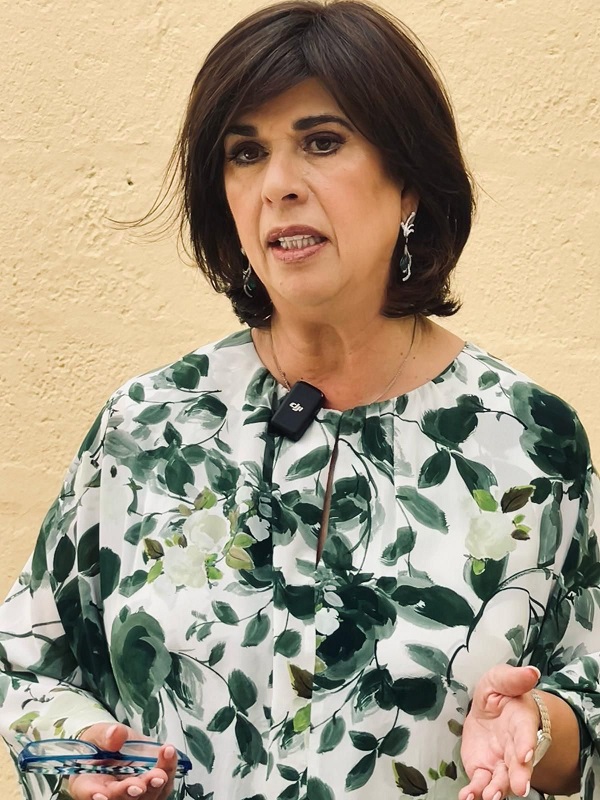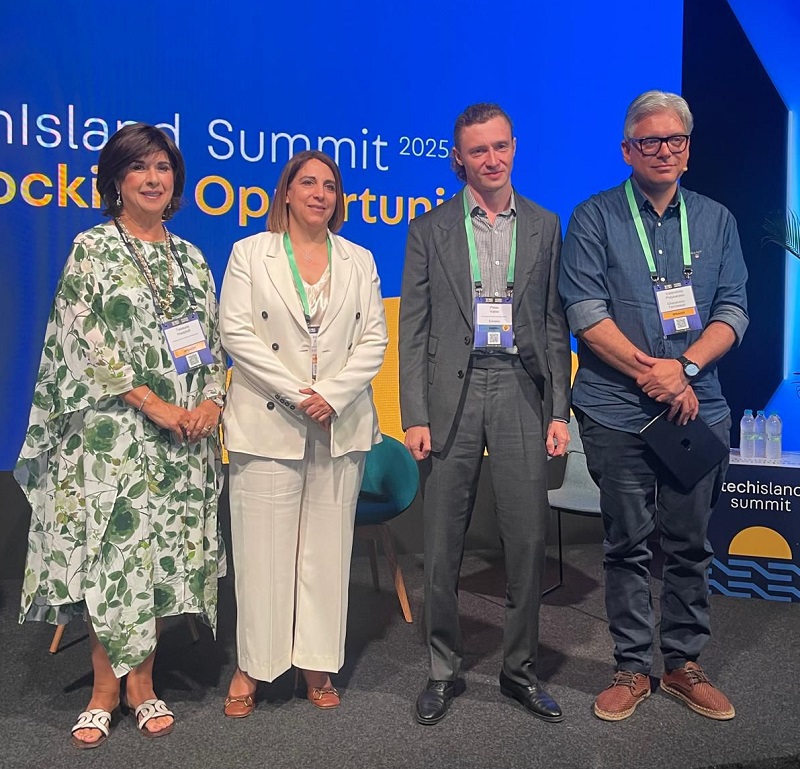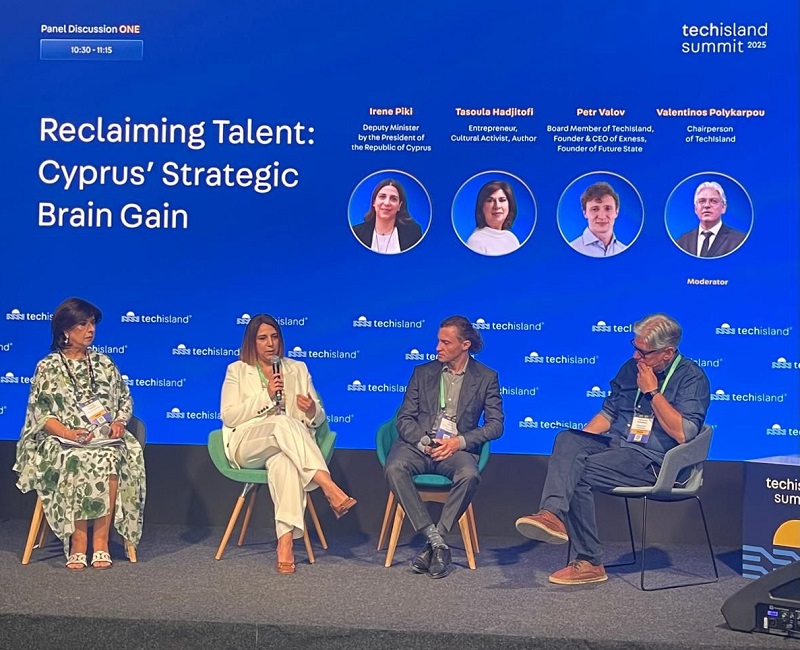At the TechIsland Summit during the Reflect Festival, entrepreneur and cultural activist Tasoula Hadjitofi urged Cyprus’ leaders to adopt globally-competitive strategies to reverse the brain drain, stating: “patriotism doesn’t pay rent”.
Speaking as part of the “Reclaiming Talent: Cyprus’ Strategic Brain Gain” panel with Deputy Minister Irene Piki and EXNESS CEO Petr Valov, Hadjitofi stressed the need for real reform to attract Cypriot diaspora and international professionals.
“Today, professionals are the ones choosing their companies and countries, and not the other way around. Cyprus will have to compete globally for their talent,” she noted.
As founder of Octagon Professionals – an international HR Services firm based in the Netherlands — Hadjitofi posed a pressing dilemma: should she continue placing Cypriots abroad in merit-based roles, or encourage them to return to a system still driven by political connections?
She criticised Cyprus’ public sector for appointed boards, lifetime job security, promotion by tenure rather than performance and lack of innovation – when the European Union’s 2013 Transparency Directive remains unratified by Cyprus’ Parliament.
“We, the diaspora, are ambitious. We left because of the limited opportunities and connections for us. We will only return if we can make a true impact for our country, which we cannot do right now given the lack of transparency,” she said.

Hadjitofi stressed that young professionals will return if they are offered equal opportunities, pointing to the UK’s newly-announced measures that the Prime Minister, Keir Starmer, announced last week to attract global talent. She compared them to the Netherlands and then Cyprus, highlighting the gaps:
- Global tech talent visa: Streamlined for top tech experts, no job offer needed
- Skilled worker salary threshold raised to £38,700 – impacts entry-level tech roles
- Graduate visa: reduced to 18 months limits talent retention post-study
- Extended settlement period to 10 years may deter long-term relocation
She then outlined four key deterrents that keep talent from returning back to Cyprus: (1) uncompetitive salaries, (2) inadequate infrastructure, (3) high urban living costs without support, and (4) lack of reintegration programmes. “€2,000 salaries won’t lure talent earning triple abroad,” she pointed out. “We must benchmark against global markets.”
Referring to the UK’s “Golden Talent Visa”, she warned: “Other countries offer so much more than just tax incentives. Cyprus can’t compete with slogans.” The higher salary thresholds for knowledge migrants, the vast demand in industries such as tech, finance, engineering and sustainability, the permanent residency availability, funding for startups, extended innovation possibilities and an economically-scalable environment is what wins people over.

Cyprus’ tech industry — limited to tech, fintech, shipping, and tourism — is constrained by lower salaries, offset by tax incentives that do not contribute to pensions or social security. She questioned whether the 12.5-per cent corporate tax rate is enough to attract EU companies, especially when countries like the Netherlands offer both tax incentives and robust innovation ecosystems. This measure will attract non-EU players, who wish to use Cyprus as a strategic entry to the EU market.
She praised TechIsland for their leadership in catalysing innovation, but called for policy to match that momentum. She proposed expansion in the areas of demand in Europe such as: space, quantum-positioning & navigation, sensors, smart materials and unmanned systems, including AI and Maritime sectors.
“Cyprus has long focused on real-estate and tourism. It must now pivot to become the gateway to Europe it aspires to be.”
Ahead of the President’s UK visit for a Brain Gain event, she warned: “We don’t need more photo ops. We need action. The diaspora is a strategic network, not a fallback. Treat us as partners.”
Asked what it would take for her to return, she answered: “My heart is here every day. I’ll come back tomorrow if we protect our heritage and demand our rights, or if I can make a real impact for my country.”
The audience — including government, tech, and civil society leaders — responded with applause. As Cyprus advances its Brain Gain efforts, Hadjitofi’s challenge sets a higher standard for real change.






Click here to change your cookie preferences